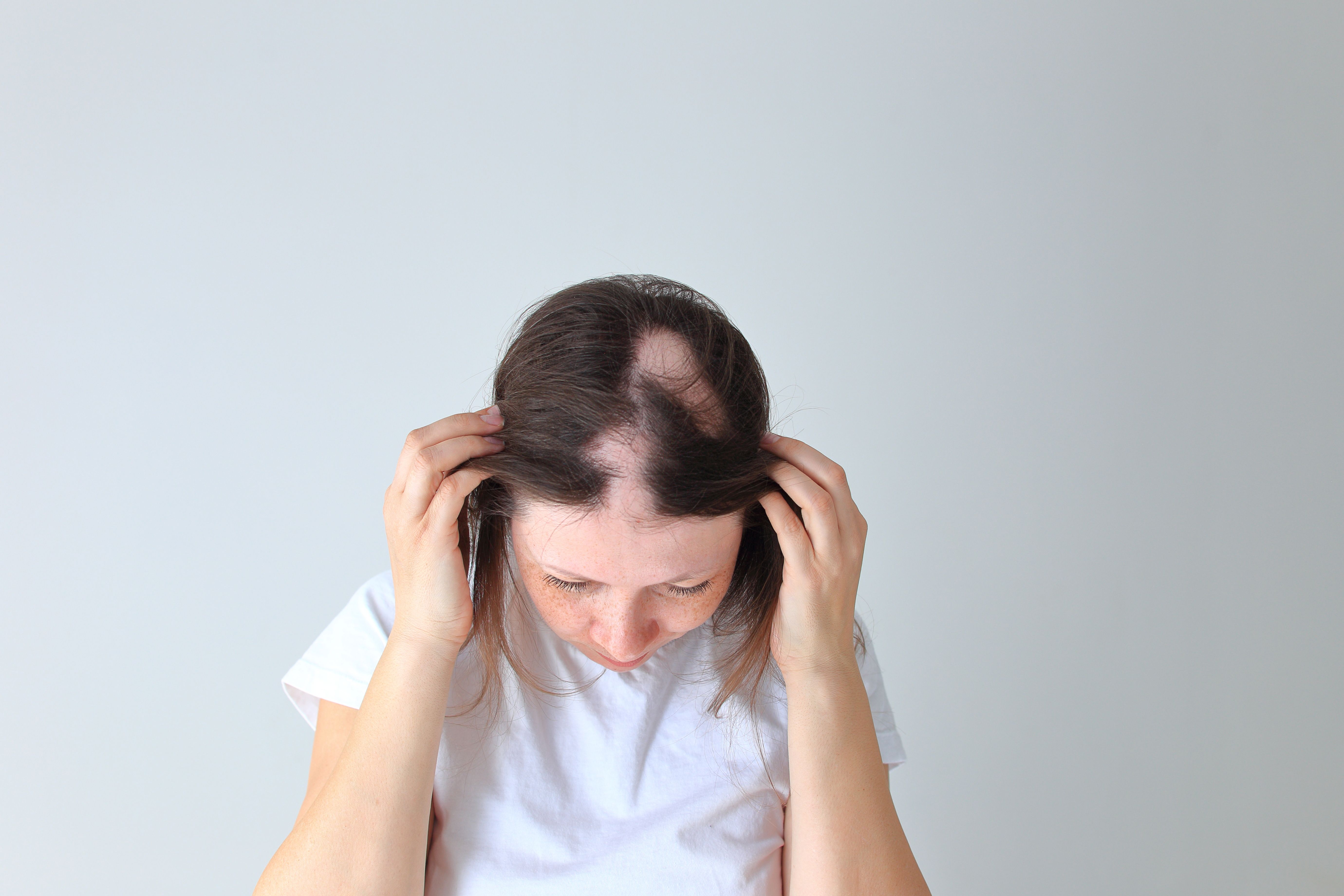- Center on Health Equity & Access
- Clinical
- Health Care Cost
- Health Care Delivery
- Insurance
- Policy
- Technology
- Value-Based Care
Baricitinib Effective in Treating Alopecia Areata
Patients with alopecia areata found effective treatment with baricitinib, which had long-term efficacy and positive results.
Baricitinib was found to be effective in the treatment of alopecia areata (AA) in adults, according to a poster presented during the 2023 Fall Clinical Dermatology Conference. The poster evaluated long-term efficacy and clinical outcomes in patients with previous normal responses and mixed responses.
AA is a nonscarring hair loss disorder, mostly affecting the scalp. The condition can also affect any hair-bearing site, such as eyebrows and eyelashes. Long-term therapy is often needed in severe AA. Data on Janus kinase inhibitors for the treatment of AA are limited. Baricitinib is approved by the FDA to treat severe AA, with a 2-mg and a 4-mg dose.
The poster aimed to assess the efficacy of AA in adults who had scalp hair loss of 50% or more, and long-term efficacy was evaluated for 104 weeks of therapy through 2 phase 3 trials, BRAVE-AA1 and BRAVE-AA2.
Real alopecia areata in a young girl | Image credit: Nadya Kolobova - stock.adobe.com

The study included patients who were treated with baricitinib 2 mg or 4 mg through 104 weeks. Patients were included if they were aged 18 to 60 years if a male patient and aged 18 to 70 years if a female patient. Patients who had scalp hair loss of 50% or more as determined through the Severity of Alopecia Tool (SALT) score and a current episode of AA between 6 months and 8 years, but did not have spontaneous improvement in the 6 months prior to screening, a primarily “diffuse” type of AA, and concomitant treatments for AA were eligible for the study.
The SALT score measured the percentage of hair loss in the 4 quadrants of the scalp, with 0 indicating no hair loss and 100, complete hair loss. The ClinRO measure was used for eyebrow and eyelash hair loss measurements, with 0 m no hair loss and 3, complete hair loss.
There were 65 patients in the 2-mg group and 129 in the 4-mg group who were week 52 responders. There were also 110 in the mixed responders 4-mg group. The mean (SD) ages for these groups were 37.5 (11.1), 36.7 (12.2), and 36.6 (12.6) years, respectively, and the percentages of females were 69.2%, 62.0%, and 56.4%. The groups were predominantly White and Asian, with those identifying as White making up 53.8%, 55.0%, and 48.2% of the groups, respectively, and patients identifying as Asian accounting for 43.1%, 37.2%, and 45.5%. Patients who were in the mixed response group had longer duration of current AA episodes and more severe baseline disease characteristics compared with the regular responders.
The researchers found the following:
- Scalp hair regrowth was maintained by 90.7% of patients in the 4-mg group and 89.2% in the 2-mg group through week 104, using a SALT score of 20 or less as a marker
- The proportion of patients who achieved complete or nearly complete regrowth of eyebrows or eyelashes increased from week 52 to week 104
- The proportion of patients whose ClinRO improved from 2 or more at baseline to 0 or 1 through week 104 rose from 70.0% to 83.8% in eyebrows and 70.6% to 80.9% in eyelashes in the 4-mg group
- Patients on the 2-mg dose had an improvement from 59.5% to 67.6% in eyebrows and 56.7% to 73.3% in eyelashes.
A total of 39.1% of patients who had mixed responses at week 52 had achieved meaningful scalp hair regrowth by week 104 when using the 4-mg dose. Mixed responders were also able to maintain complete or nearly complete regrowth of eyebrows and eyelashes through week 104, with the proportion of people having complete eyebrows holding steady from 71.4% at week 52 to 72.4% at week 104. A similar result was seen for eyelashes, as the proportion of patients who maintained complete eyebrows held steady from 71.1% at week 52 to 72.2% at week 104.
Seventy-six percent of all patients reported any treatment emergent adverse events; 5.1% were reported as severe compared with 40.4% mild and 30.4% moderate. Serious adverse events were reported in 5.0% of patients. No deaths were reported.
The researchers concluded that efficacy was maintained by 90% of patients through week 104 who were treated with baricitinib, both the 2-mg and 4-mg doses. There also was an increase in the proportion of patients who achieved a ClinRO Measure of 0/1 between weeks 52 and 104, and nearly 40% of the mixed responders achieved a SALT score of 20 or less through week 104 after treatment with baricitinib 4 mg, with the medication deemed to be safe.
Reference
Senna MM, Mostaghimi A, Ohyama M, et al. Long-term efficacy of baricitinib in alopecia areata: 104-week results from BRAVE-AA1 and BRAVE-AA2. Presented at: 2023 Fall Clinical Dermatology Conference; October 19-22, 2023; Las Vegas, NV.
